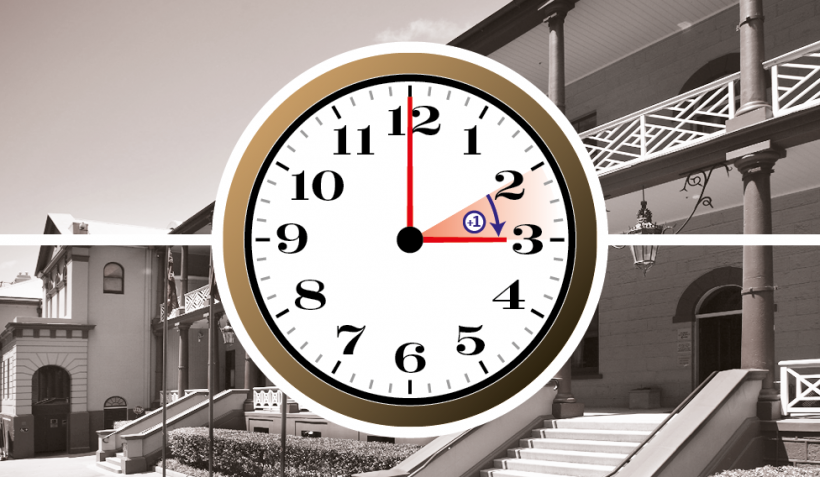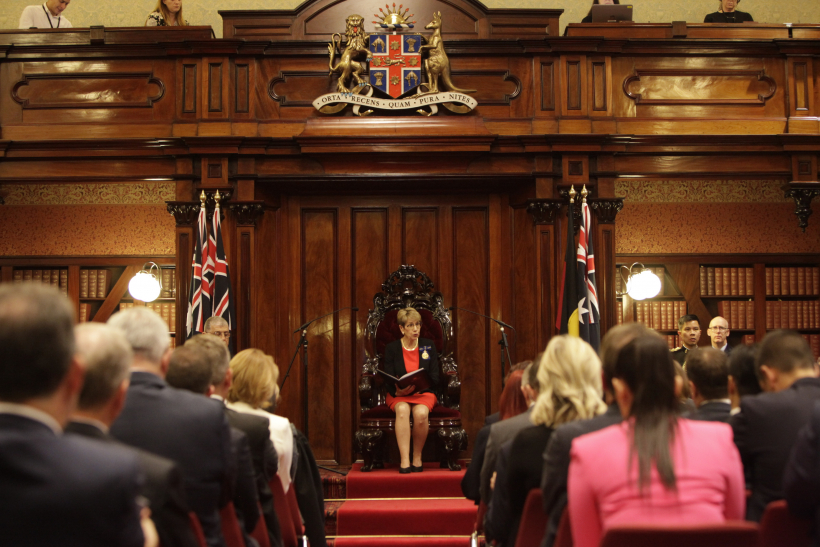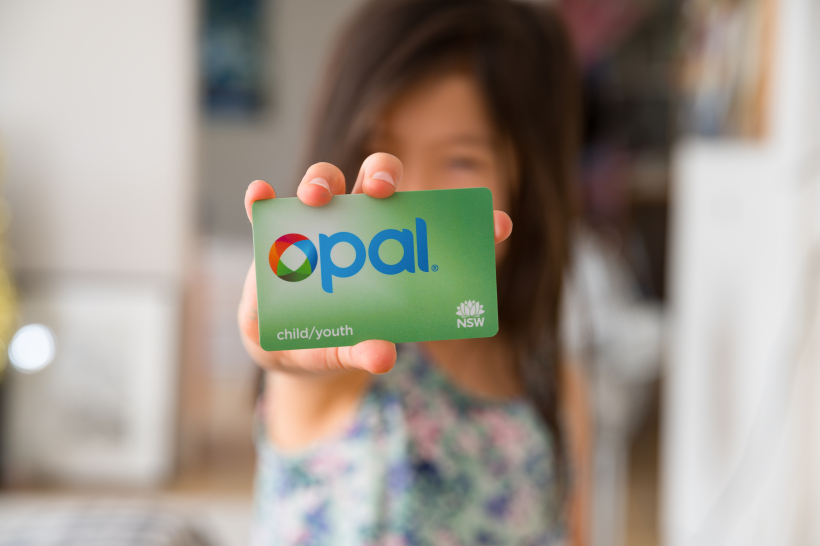What Will I Learn
- How the NSW Parliament works
- The steps involved in making a law
- What the two Houses of Parliament do
- What parliamentary committees do
About the NSW Parliament
The NSW Parliament is elected by the people of NSW every four years. It is a bicameral Parliament which means it has two Houses: the Upper House or Legislative Council, and the Lower House or Legislative Assembly. The NSW Parliament makes laws for NSW.
Another name for a parliament is a legislature. This means: a place where laws are made by elected members of parliament. These members are called elected representatives because they are elected to bring the ideas of the people who elected them to parliament. Another of the jobs of parliament is to check up on what the Government is doing.
The job of the Government is to put the laws made by parliament into action. The Government is made up of the members of parliament that won the most seats in the Lower House at the last election. So in NSW and Australia the Government is also part of the Parliament.

Watch a Regular Sitting Day
What does the Legislative Assembly do?
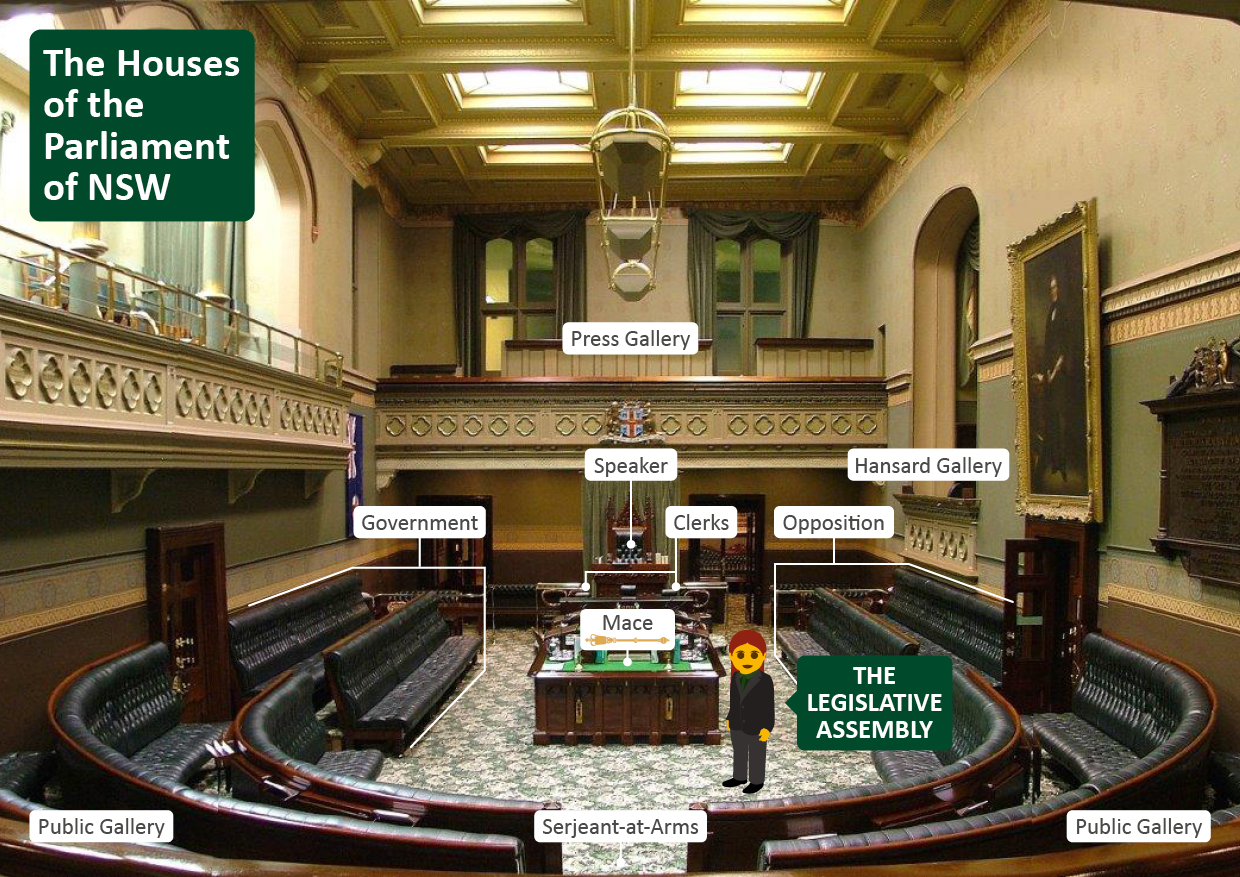
The main roles of Legislative Assembly are:
- To represent the people: There are 93 members of Parliament (MPs), each representing one of the 93 electorates in the State. Elections must be held every 4 years and members of the Assembly are elected for a 4 year term.
- To form the Government for New South Wales: The leader of the party with a majority of members in the Legislative Assembly after an election becomes Premier and that party becomes the Government. The Ministers are members of Parliament chosen from that party.
- To make laws: The Parliament makes laws by debating bills in each House, which, if agreed to by both Houses, are then sent to the Governor for Royal Assent.
- To keep a check on Government for the people of New South Wales: To do this Members ask questions of Ministers at Question Time, raise concerns in parliamentary speeches, participate in parliamentary committees to inquire into issues, present petitions from people in their electorate to parliament.
Go on a Virtual Tour of the Legislative Assembly Chamber
What does the Legislative Council do?
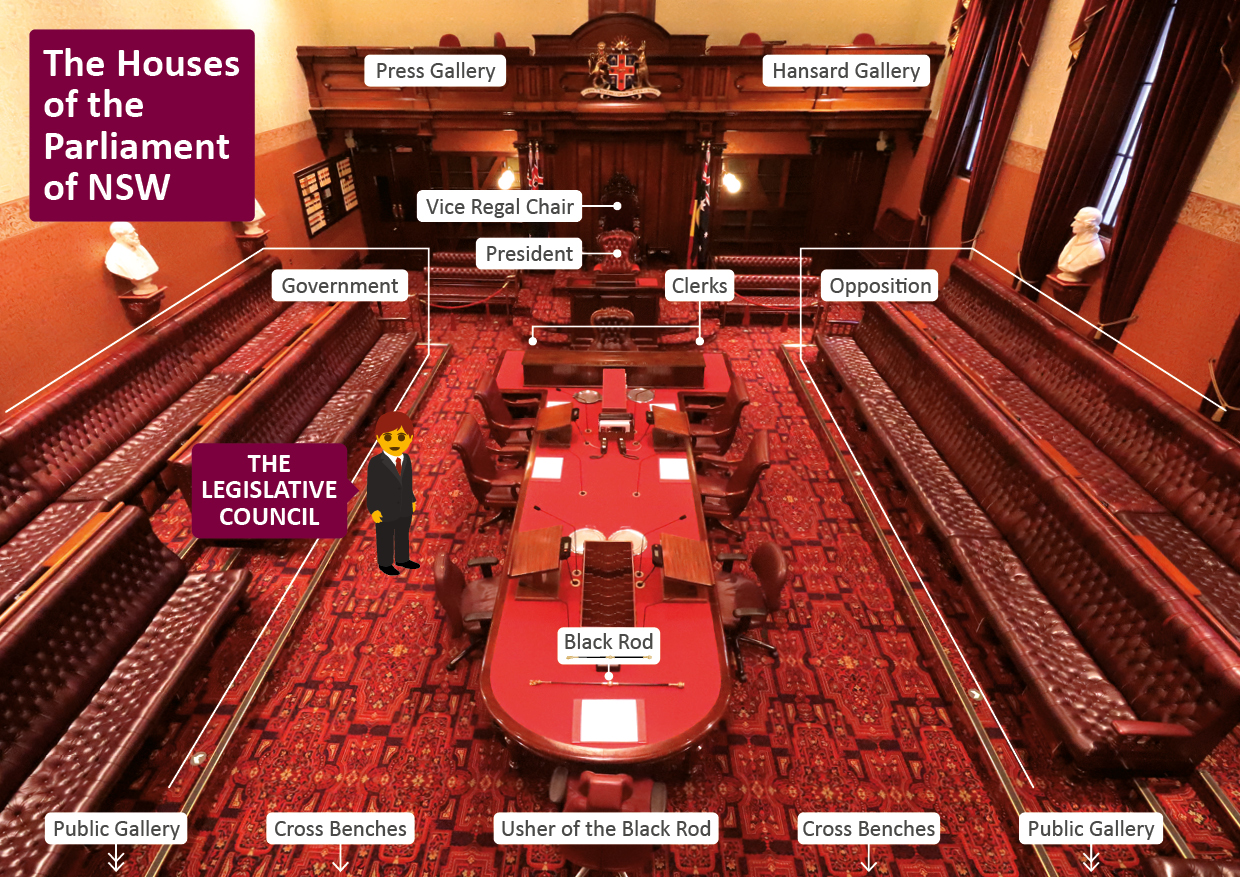
The main roles of the Legislative Council are:
- To represent the people: There are 42 members of the Legislative Council (MLCs) elected for eight years each representing the whole State of New South Wales. Every four years at the State election 21 members are elected.
- To make laws: The two Houses of the New South Wales Parliament have equal power in the making of laws. All Bills must be passed by both Houses to become law.
- To keep a check on Government for the people of New South Wales: The Legislative Council is also known as the House of Review. It checks on Government by debating bills, looking carefully over all legislation, using parliamentary committees to inquire into issues, ordering the Government to show the Legislative Council official government documents, questioning Ministers at Question Time.
Go on a Virtual Tour of the Legislative Council Chamber
What do Members of Parliament do?
What do Members do in the Parliament?
- Form part of Government, Opposition or the Cross Bench (Independents and Minor Parties)
- Attend sittings of parliament
- Debate and vote on proposed bills and the other important issues discussed in parliament
- Take part in parliamentary committees
- Meet with Ministers, community groups or the media
- Raise issues in parliament on behalf of the people in their electorates
- Some members of parliament have extra jobs such as Minister or Speaker or President
- Take part in meetings with the other members of the political party they belong to.
What Do Members Do In Their Electorates?
- Help people and organisations in their electorate with problems they have with State Government issues (for example, housing, transport, environment, state taxes, etc)
- Meet with local organisations, businesses, and government departments to find out their needs and attend local events
- Monitor local services and ask government to provide more facilities when needed
- Attend meetings of the political party they belong to.
Making the Law
The laws made by parliaments are called statute law. When they are debated in parliament they are called a Bill. If they are passed by parliament they are called an Act.
Ideas for new laws can come from individuals, community groups, organisations, public opinion, the media, government departments, or as a result of court decisions. Most laws begin as decisions of the political party that is in government.
The main steps in making a law are:
- Developing ideas for laws.
-
Drafting a Bill. This is the process of turning an idea into the language of a law and is the work of expert drafters in the office of Parliamentary Counsel.

-
The Parliamentary Process. Most bills are introduced by Ministers in the Legislative Assembly but any member of Parliament can introduce a bill in either House.
All bills must be passed by both the Legislative Assembly and the Legislative Council to become a law.
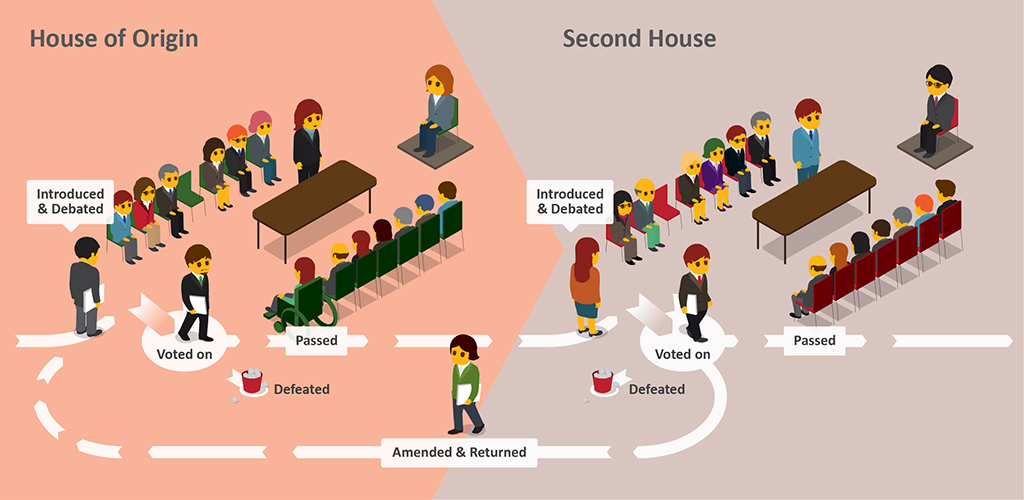
-
Royal Assent. This is the final step for a bill to become an Act. After it has passed through all stages in both Houses of parliament the Governor signs the Bill to give it formal approval.

- Commencement. An Act will start being a law 28 days after the Governor has signed it unless another date is written in the Act for when it is to start.
Parliamentary Committees and Members of Parliament
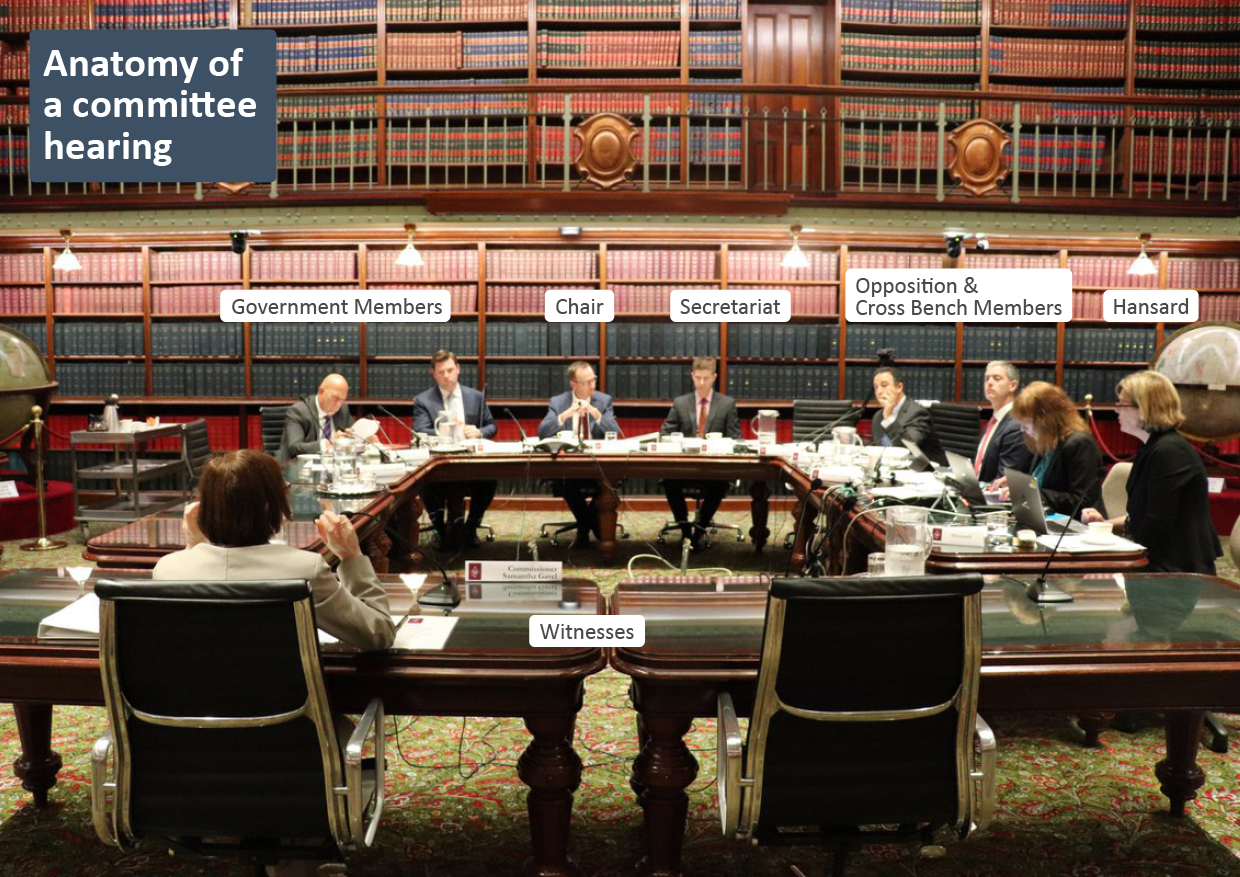
A parliamentary committee is a group of members that come together to investigate an important issue. They ask the community and experts for more information about the issue. Once they have enough information they write a report to tell the Government what they think it should do about this issue. Some of the things that committees investigate are:
- a proposed new law or government activity
- an important social or legal problem
- how government departments are spending the money given to them


